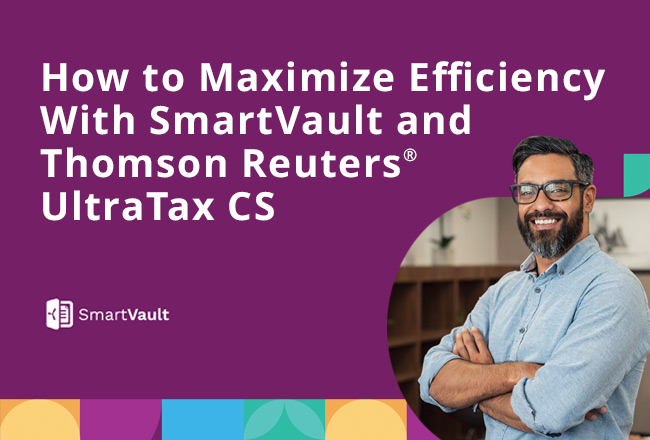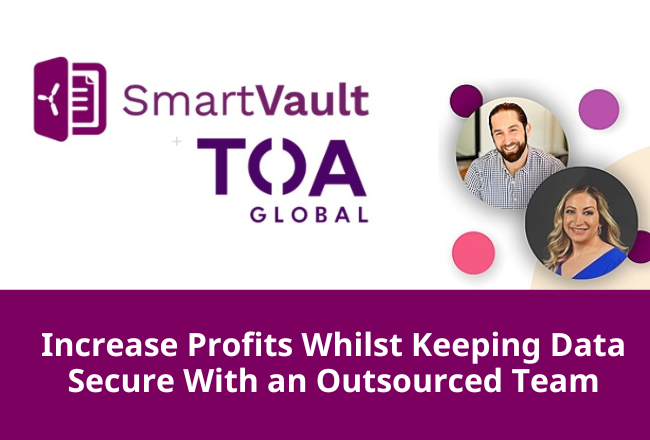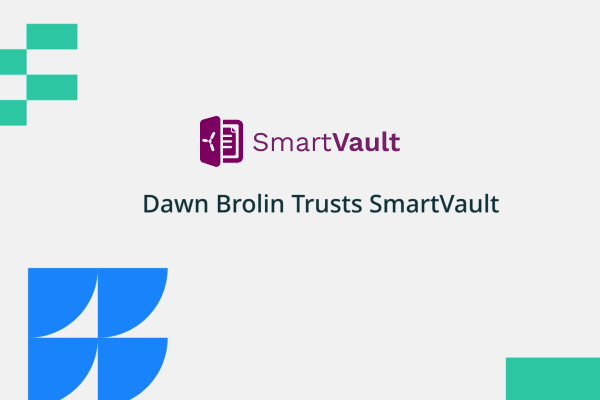
7 Benefits of Working in the Cloud for Accountants
Despite all the technological progress accountants have made during the pandemic, many surprisingly stopped short of transitioning to the cloud. If you’re still on the fence and not sure if the cloud is right for your business, look at the benefits below. They’ll clearly illustrate why it’s advantageous to make the transition to the cloud.
1. Your Data is More Secure
Protecting your clients’ data from cyber-attacks is crucial to maintaining your reputation, retaining your customers, and avoiding costly downtime due to breaches. “We need to ensure that we are handling all of our client data in a way that meets all regulations while giving ourselves and our clients peace of mind,” advises Robin Johnson, owner of TaxAssist Accountants Norwich North.
The cloud is the most secure place to store your data for numerous reasons. First, only you and other authorized users can access it. Second, it’s encrypted at all times (unlike most emails), and you won’t need to spend money hiring an IT expert to maintain and safeguard your information: Cloud providers have teams for just these purposes. Third, you can store your data on a private, or dedicated, server, which you won’t have to share with other companies. This option is popular among businesses that handle confidential financial information, like accounting firms, and it provides an additional layer of protection and other benefits.
2. You’ll Save Money
Stop wasting hundreds of dollars and endless hours every time your practice’s chosen software program gets an upgrade. Cloud-based accounting software vendors update their features and security throughout the year typically at no additional cost to the user, and the updates are pushed out through the cloud. This means you or your team don’t waste time manually updating software. Furthermore, you won’t need to purchase extra storage space, multiple servers, or a space to house those servers. Nor will you need to hire an in-house IT expert or an outside contractor to maintain and manage those servers.
3. Client Collaboration is Easier
Working in the cloud can solve some of the everyday headaches you experience when working with clients. For example, Christa Skoupy, CPA, and her staff used to manually email encrypted PDFs to their clients. “Sometimes, we had to email a client numerous times because they would lose the email or forget to download a document. It really became time-consuming,” she recalled. These situations, while minor, are frustrating for both parties and make your firm look disorganized and difficult to work with. Smooth client collaboration is a crucial element of increased client retention and referrals – the backbone of your business. The cloud is a highly effective way to streamline your process, facilitate communication, and make your clients’ experiences positive.
4. Cloud Software is User-Friendly
Cloud software is designed to be user-friendly and intuitive, regardless of how tech-savvy a person is. Not only will you be able to come up to speed on the features quickly, but you can rest assured your clients, regardless of their skill level when it comes to tech, will have an easier time as well. Upgrading to the cloud will make your system more accessible. Since it’s easy for anyone to use, the client onboarding process will be easier, thus resulting in a more positive client experience.
5. You Can Focus on Revenue-Producing Client Advisory Services
For years, experts have been encouraging accountants to move from offering tax compliance services to providing client advisory services. These enhance your value to your clients, future-proof your practice, and help you grow your profits and expertise. Automating your tax practice by transitioning to the cloud will free up time for you to focus on providing services that make additional money. Cloud-based accounting programs perform basic accounting and bookkeeping tasks, including scheduling reports, posting transactions to the corresponding ledgers, creating invoices, and more.
6. It Makes You More Attractive to Top Talent
Hiring top talent has been a significant challenge for accountants over the last few years, along with retaining good employees. Transitioning to the cloud is one step you can take to make your firm more attractive to high-quality staff members. Allowing employees to work from anywhere contributes to a great work-life balance, which is incredibly important to today’s workforce. A Gallup poll that explored job seekers’ priorities revealed 61% of people cite work-life balance as incredibly important. Additionally, since transitioning to the cloud will lower your operating costs, it frees up money in the budget to create an attractive benefits package, another top item on the job-seeker wish list. The same Gallup poll demonstrated 64% of respondents consider pay and benefits to be pivotal factors when deciding whether to accept a job offer. You’ll find few other solutions that directly address current and prospective staff members’ major concerns.
7. Disaster Recovery is Easier
While the word “disaster” might make you think of once-in-a-generation weather events and other freak scenarios, in business, it also refers to something much more ubiquitous: an outage, which generally equates to a power failure. Whether at the office or home, a loss of electricity is a significant business interruption and often means lost data and extensive money and time spent restoring everything. We also lose data in simple mistakes, like misplacing documents or throwing away the wrong files. For those working in the cloud, disaster recovery is easier, resulting in less downtime. You don’t need to have a secondary data center, as you do with traditional disaster recovery. Instead, cloud providers store your data on multiple remote servers, which they maintain and back up regularly. They’ll help you restore your data quickly. Better still, using the cloud actually reduces your vulnerability to disasters. Storing your information on remote rather than on-premise servers means that even if a flood or other weather event impacts your home or office, you won’t lose everything.
Make a Smooth Transition to the Cloud
Moving your accounting practice to the cloud doesn’t have to be overwhelming. In our free guide, Moving to the Cloud is Right for Your Firm. Here’s How to Get There, you’ll learn what exactly “the cloud” is and what steps you can take to make the transition seamless. View a sample of the guide or download the full guide here.
SmartVault combines a secure document management and file-sharing solution with an online client portal, all of which can easily be accessed through the cloud. Learn how SmartVault can work for your firm. Schedule a demo with us to get started.




